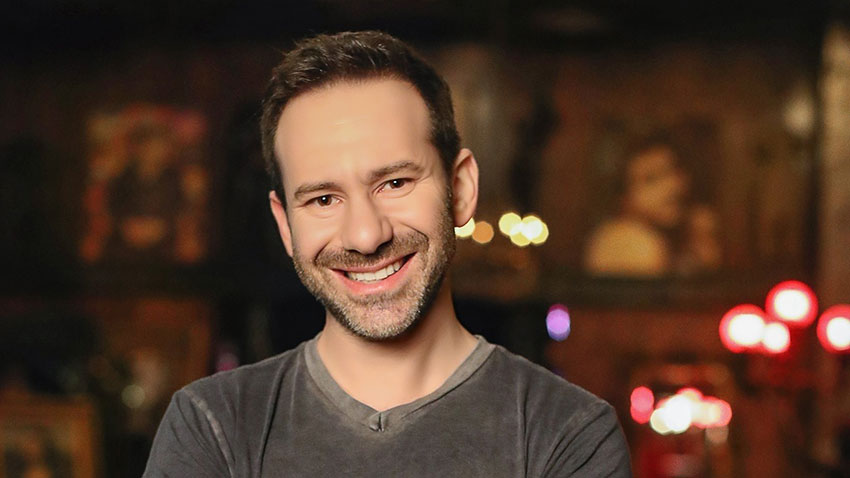Hitler serves as a warning to today’s conservatives, EU’s Manfred Weber says
The European People’s Party chief tells POLITICO he is trying to strike a balance between relying on far-right support while blocking extremists from power.
BRUSSELS ― Germany’s Nazi past should serve as a warning to Europe’s conservatives as they wrestle with how far to rely on support from the far right to push through their policies, the EU’s center-right leader said.
In an exclusive POLITICO interview, Manfred Weber said he believes the European People’s Party ― the umbrella group of center-right parties from across the continent that Weber leads ― has a huge mandate to deliver right-wing programs, but must do so without committing the same mistakes that Germany’s conservatives did in the 1930s when they enabled Adolf Hitler to come to power.
“Having also my German history in mind with Weimar and the Nazi regime, then the real historic mistake was to give right-extreme politicians executive power, and that is for us the red line,” he said.
But the party walks a tightrope. While not actively negotiating with the far right, the EPP can often depend on its votes in the European Parliament, becoming bedfellows in areas such as migration and deregulation ― exactly the sort of issues, the EPP feels, that motivated voters to support it.
“I would love to see a different situation in the European Parliament,” Weber said. “But they are here, they have a vote … and the EPP has one principle and that is following our promises.”
Weber personally, and the EPP more broadly, have been criticized by the Socialists, liberals and Greens for tilting rightward after the June Parliament election in both policy and rhetoric. Those critics argue the EPP has cozied up to politicians they consider extreme, such as Italian Prime Minister Giorgia Meloni and her Brothers of Italy party, which Weber deems sufficiently moderate to team up with in a loose coalition dubbed the Venezuela majority.
Right-wing answers
The EPP is home to heavyweights such as European Commission President Ursula von der Leyen, German Chancellor Friedrich Merz, and Polish Prime Minister Donald Tusk. Since last June’s election it has held control of the EU’s main institutions ― the Commission, the Parliament and the Council ― and so holds sway over swaths of decision-making.
Weber, a member of the Christian Social Union (the Bavarian sister party of Merz’s CDU), said the election results — which gave the EPP the largest number of MEPs — followed a surge of far-right forces signaling that citizens want right-wing answers to their problems and ending the center-left consensus that had dominated the previous term in Brussels.
His ideal scenario, Weber said, is to work with centrist parties to enable a right-wing shift.
Weber said he is aware that on key issues such as defense, foreign affairs and budget “there is no possibility of achieving anything … to develop Europe together with the far right.”
Ahead of the June 2024 European election the party took over topics pushed by populist movements and made them their own. They are now being translated into EU policy ― which is one of Weber’s strategies to keep voters out of the clutches of extremist parties.
“We are fighting against the right extreme … this is only possible if we do policy change to answer what people ask us to do,” Weber said, claiming that the EPP is the only party that is taking steps to fight the far-right surge. “The others speak about it, but we are doing it.”

Most notably, on migration, the EPP vowed to boost deportations and border control. They also promised to deregulate by reopening key green legislative files. In the Parliament they have counted on far-right support to press through their policy goals, such as watering down a deforestation bill and bringing down the EU ethics body.
Despite Weber’s red line of not allowing extreme forces into positions of power, some of the EPP’s national parties are taking their own path. In Spain, for example, the Partido Popular has previously formed governments in several regions with the far-right Vox, which is affiliated with the Patriots for Europe party at the European level.
“There is no left-liberal majority anymore in this house, and that must also be translated in politics, things must change after 180 million people went to [the] ballot boxes,” Weber said. “That’s why, for me, [the] key is that our agenda is dominating now the European agenda.”




















:quality(85):upscale()/2023/10/03/668/n/1922283/1f15c8a9651c2d209e5eb5.32783075_.jpg)
:quality(85):upscale()/2025/08/14/650/n/1922283/470aeb83689df49cdc1bb6.14084110_.jpg)
:quality(85):upscale()/2025/08/13/775/n/1922283/3c0cbead689ccd0c422644.10221678_.png)
:quality(85):upscale()/2025/01/08/844/n/1922398/cde2aeac677eceef03f2d1.00424146_.jpg)
:quality(85):upscale()/2025/07/10/708/n/1922398/8fe2782e686fe372b38bf8.29984296_.jpg)














:quality(85):upscale()/2025/02/27/808/n/1922398/26784cf967c0adcd4c0950.54527747_.jpg)

